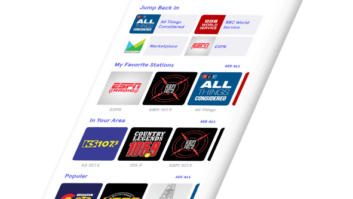The days are getting longer, which must mean that the Federal Communication Commission�s staff wants to clear their desks before summer vacations kick in. In a flurry of recent activity, the FCC moved forward on several initiatives we�ve been waiting to see.
PUBLIC FILE
First, the commission announced that it had completed the development of its new online public inspection file database. As discussed in the March 2016 edition of our column, the FCC adopted rules to require radio, cable, DBS and satellite radio licensees to migrate to an online public file report. The requirements for terrestrial radio licensees are staggered based on the size of their respective radio market, and the requirements for cable companies are staggered based on the size of their respective cable systems.

In a public notice released May 12, the FCC announced that the first wave of entities will need to begin using the online public file database as of June 24, 2016. This requirement applies to commercial radio stations in the top 50 Nielsen Audio radio markets that have five or more full-time employees. These licensees must begin uploading newly created materials (think second quarter issues/program lists due by July 10) starting on that date. Furthermore, these licensees will need to make sure that any document that is required to be in the station�s public file (with one exception) is placed in the database as of Dec. 24, 2016.
The one exception relates to the station�s political file. As previously noted, the FCC�s new rules will not apply to the first wave of radio stations for their existing materials that are required to be kept in the station�s political file. Instead, these stations are only required to upload newly prepared political file materials to the online database.
While there had been some speculation (hope?) that the new online database would not be ready for prime-time until the fall political season was well underway, the June 24 launch date ensures that radio stations with five or more full-time employees in the top 50 markets will be busy uploading political file materials throughout the summer and fall.
All other radio stations, including noncommercial radio stations, must be ready with their materials uploaded to the database by March 1, 2018. Stations can convert to the new system earlier than that deadline, but once they notify the FCC that they have completed the transition, they may no longer rely on the materials in the public file located at their main studio.
ALERTING
Next, the FCC released details about the new Emergency Alert System Test Reporting System that EAS-participating stations must use after a nationwide EAS test.
The FCC had adopted new rules in June 2015 which introduced a new location code for nationwide testing and the creation of ETRS. The information collection aspects of the new rules were approved in December 2015, and recently, the Federal Emergency Management Agency announced its intention to initiate a nationwide EAS test on Sept. 28. The FCC�s public notice released in April 2016 announced the progress made in creating ETRS, and informed the public that it intends for EAS Participating stations to use ETRS to report on their participation during this upcoming test.
The April 2016 Public Notice provided screenshots of ETRS step-by-step instructions for the preparation of an ETRS report. Stations will be required to register with ETRS within 60 days of the official launch of the system. Licensees will be required to complete sections of the form providing the identification of EAS participants and related background information, such as the EAS Participant�s facility identification number, transmitter locations EAS designation, EAS monitoring assignments, the equipment type and the software version of installed EAS equipment.
Subsequently, when a nationwide EAS test is activated, stations will need to complete a report within 24 hours. The report requires confirmation whether the EAS message was received and retransmitted, information about the source of the EAS message and disclosure of any difficulties experienced by the station regarding the receipt or retransmission of the message.
The public notice indicated that the FCC will announce the first deadline in an upcoming public notice. The FCC will also release a public notice at least two months prior to the September nationwide EAS test.
Petro is of counsel at Drinker Biddle & Reath LLP. Email: [email protected].
DATELINE
June 24, 2016 � Commercial radio stations with five or more full-time employees must being uploading newly-prepared public file materials to the new online public inspection file database.
July 10, 2016 � Issues/program lists must be placed in stations� public inspection files (online or paper depending on location).












